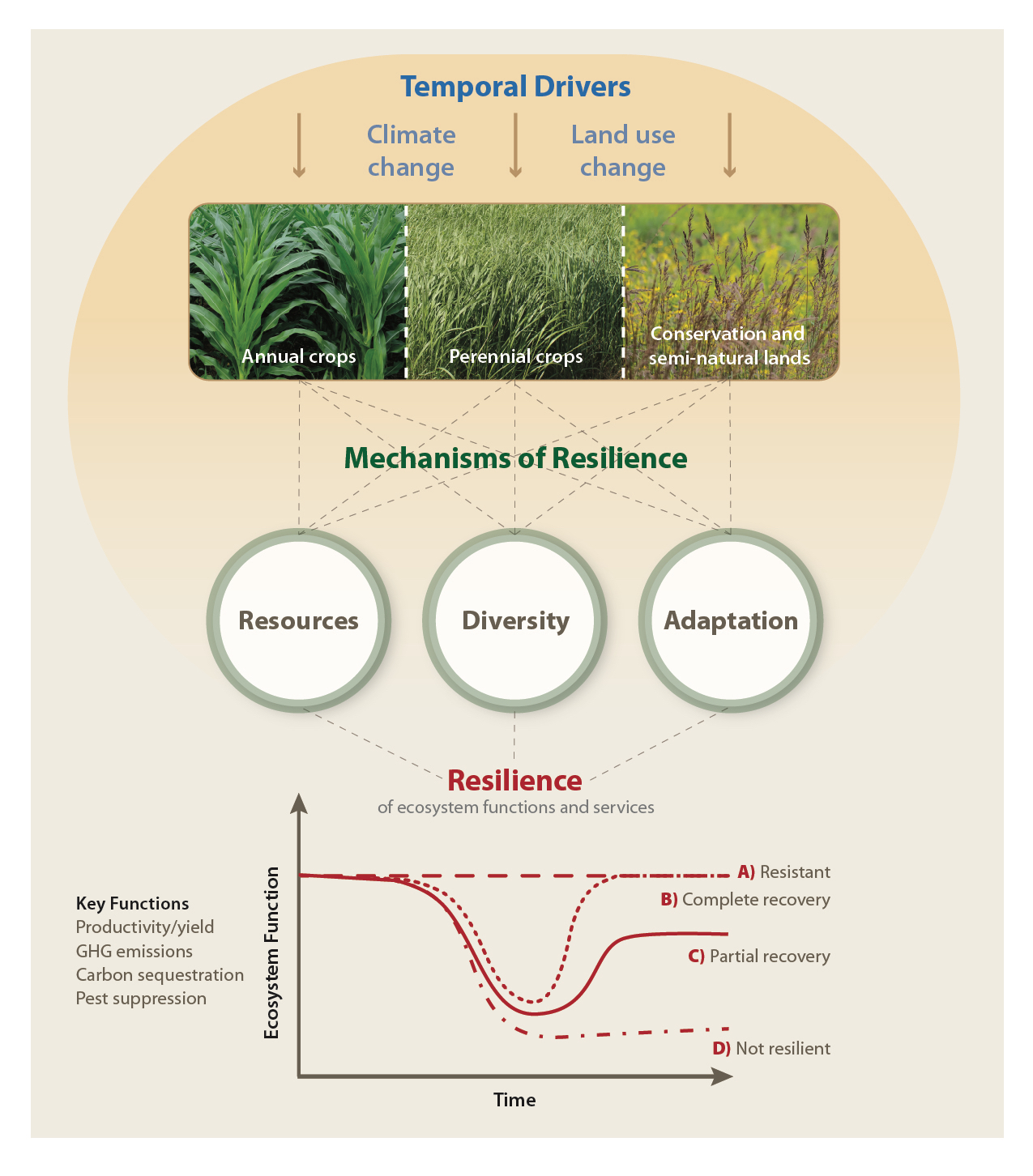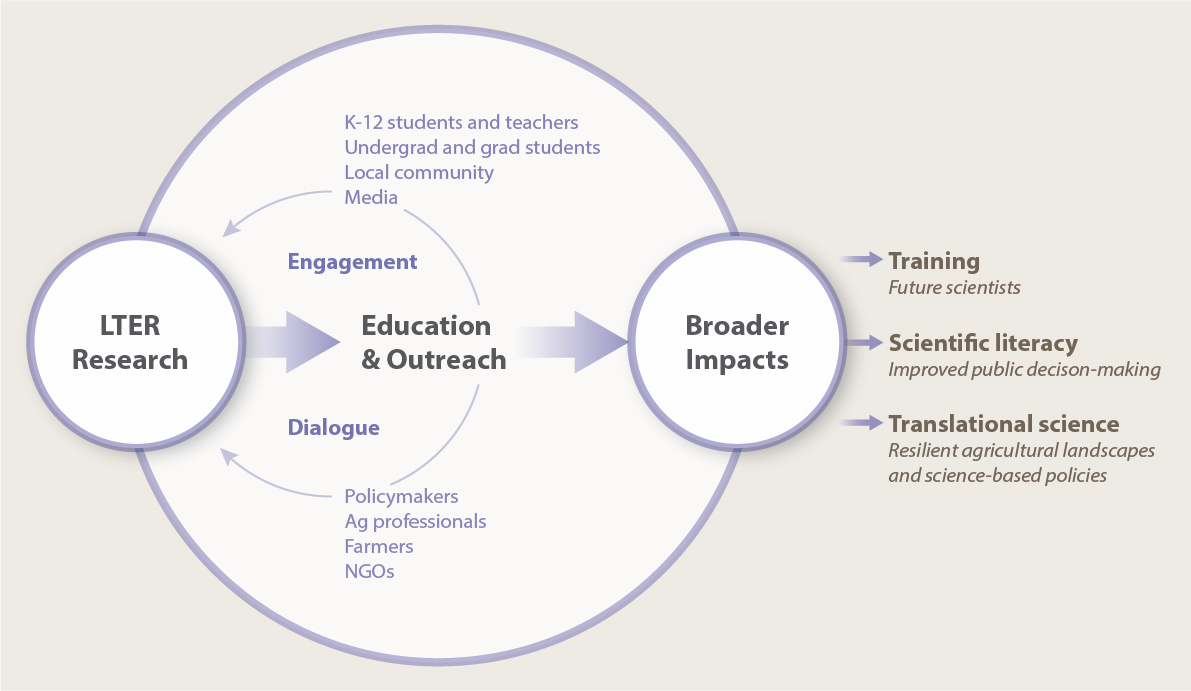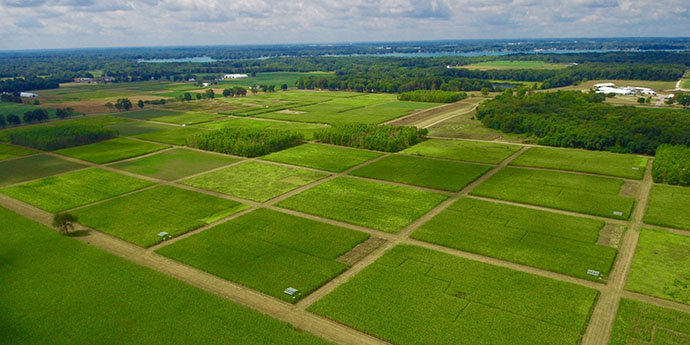Imagine for a moment a Midwestern agricultural landscape in late August that has not seen rain in weeks. Some corn fields remain green, showing no sign of a moisture deficit while other fields have curled leaves, plants starting to yellow. Belowground, microbial communities between the fields are acting differently, too, some biding their time until a pulse of rain puts them in motion while others continue their work.
Under the same climate and soils, why is one field more resilient to the stress of drought? What about that field helps it to remain productive? In the midst of global changes, especially related to climate and land use, these questions matter. Investigating them is the charge of the next phase of research for the Kellogg Biological Station Long-term Ecological Research program, funded by the National Science Foundation. More specifically, the overarching question for the KBS LTER is now, What mechanisms contribute to the resilience of key ecosystem functions and services in agricultural landscapes in the face of long-term environmental change?

The KBS LTER will focus on mechanisms contributing to resilience along a land use complexity gradient of annual cropping systems to perennial cropping systems to conservation lands. Climate and land use change strongly affect ecological processes in agricultural landscapes. We focus on 3 mechanisms we believe are key to the resilience of agricultural ecosystems: resources, diversity, and adaptation.
Building on its foundation of long-term observations started in 1988, the KBS LTER will combine long-term experiments and observations with new experiments that simulate growing-season droughts. Across a diversity of managed crops and natural vegetation, we will test the importance of three different resilience mechanisms. These include resource availability (soil resources and social resources), diversity (species richness), and adaptation (both biological and technological). In addition, evolutionary responses will be explicitly considered, for example how drought changes soil microbial communities and processes. We will continue to survey farmers to reveal how decision-making in the face of a changing climate contributes to resilience.
These findings help advance the basic science of agricultural ecosystems. Results will also inform our education and outreach program—centered on dialogue with stakeholders—helping us contribute to scientific literacy, training future scientists, and translational science.

In this phase of KBS LTER, we increase our efforts to build scientific literacy of teachers and students in resilience of agricultural ecosystems. We will engage in translational science based on ongoing dialogue between scientists and stakeholders, and contribute to the building of resilient agricultural landscapes and science-based policy.
~~~~~~~~~~~~~~~
Michigan State University’s Kellogg Biological Station Long-term Ecological Research (KBS LTER) Program studies the ecology of intensive field crop ecosystems as part of a national network of LTER sites established by the National Science Foundation.
